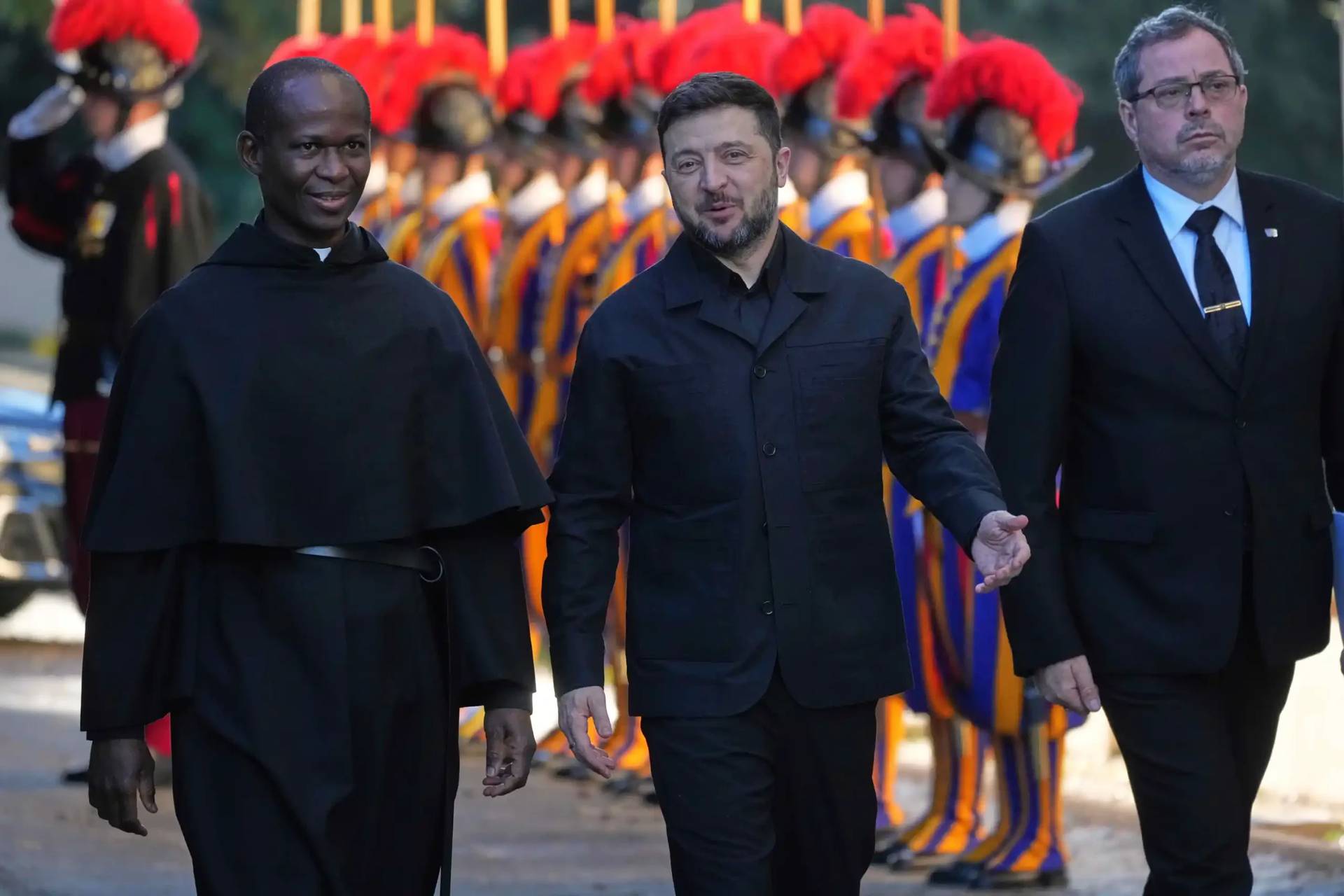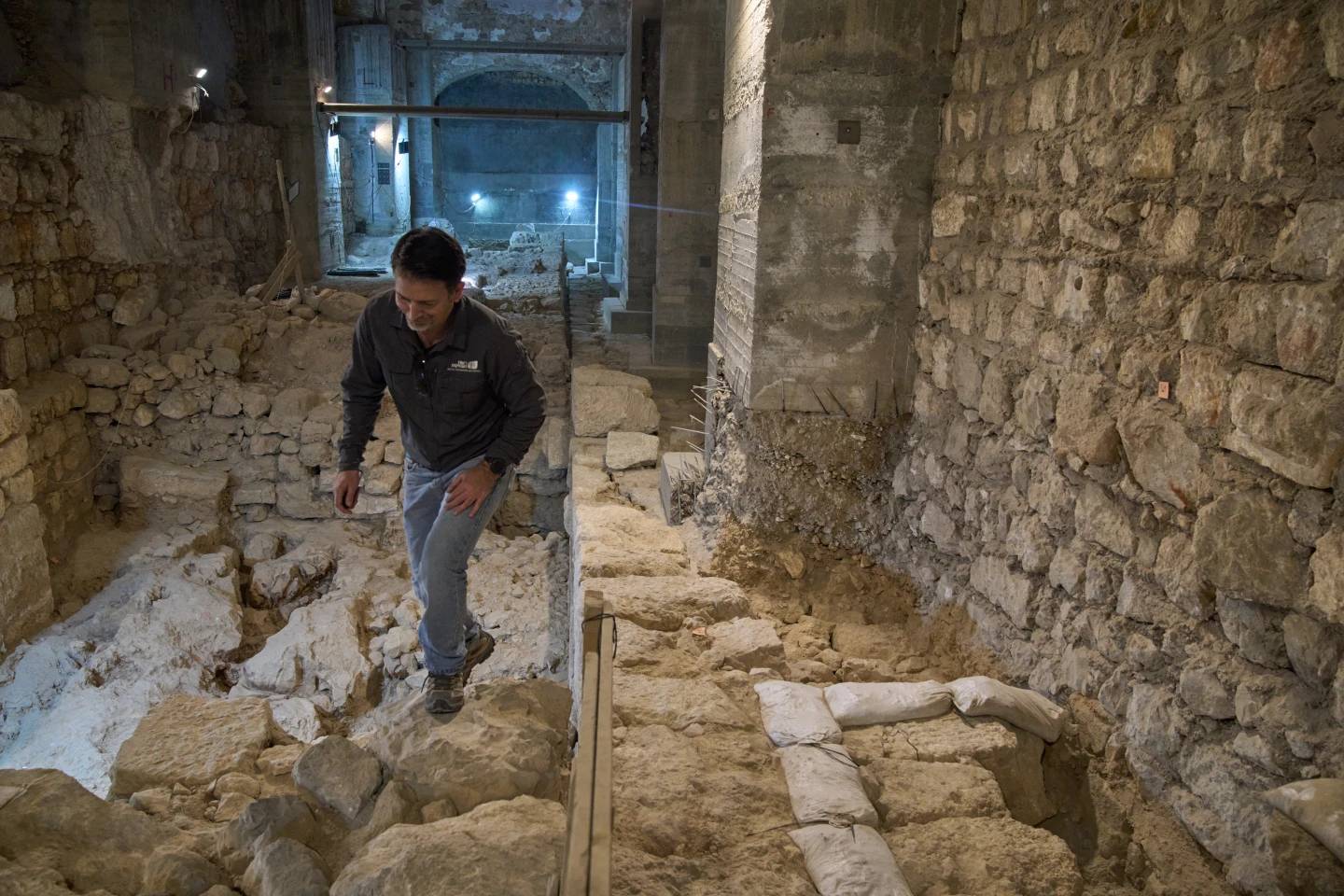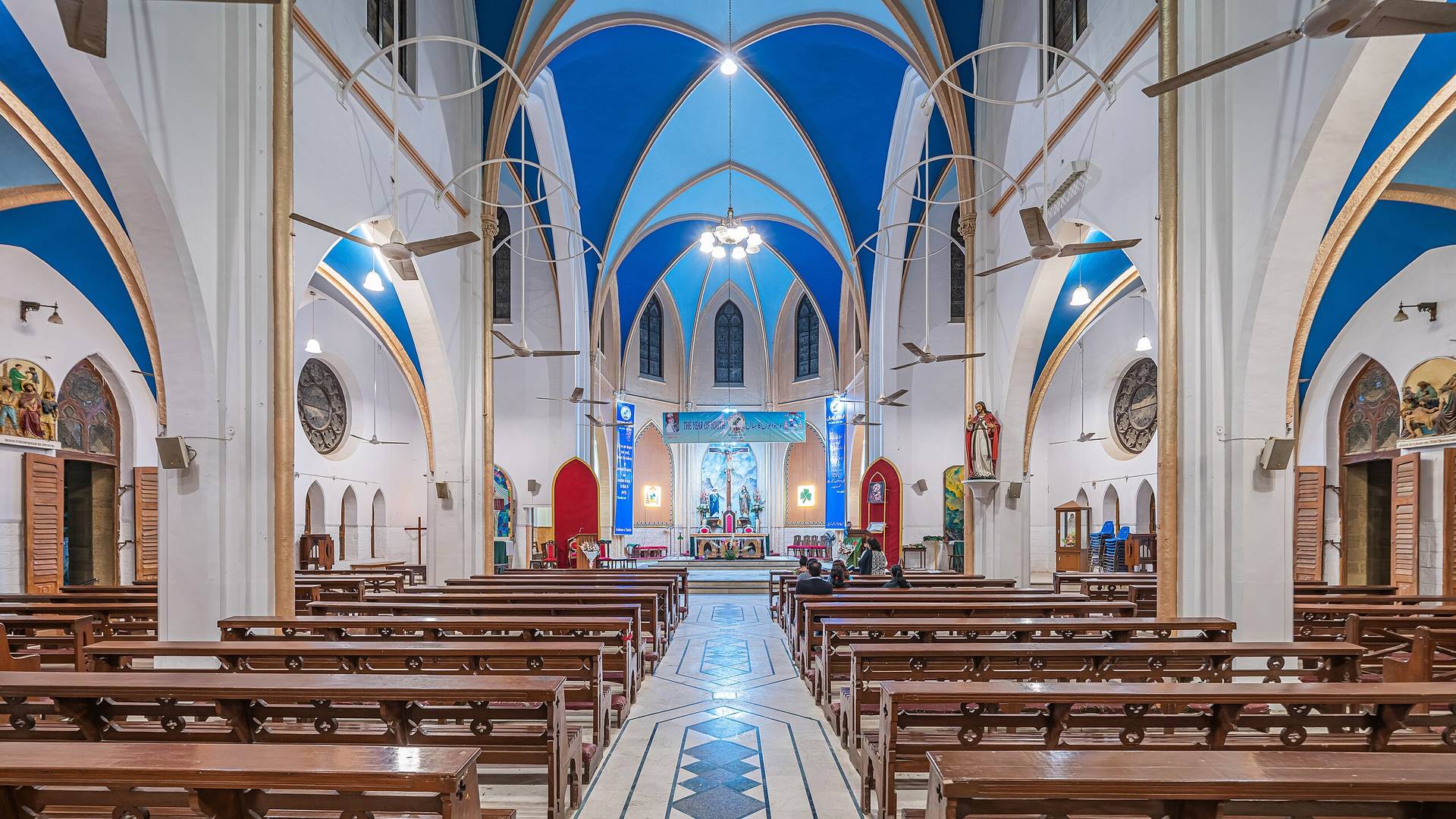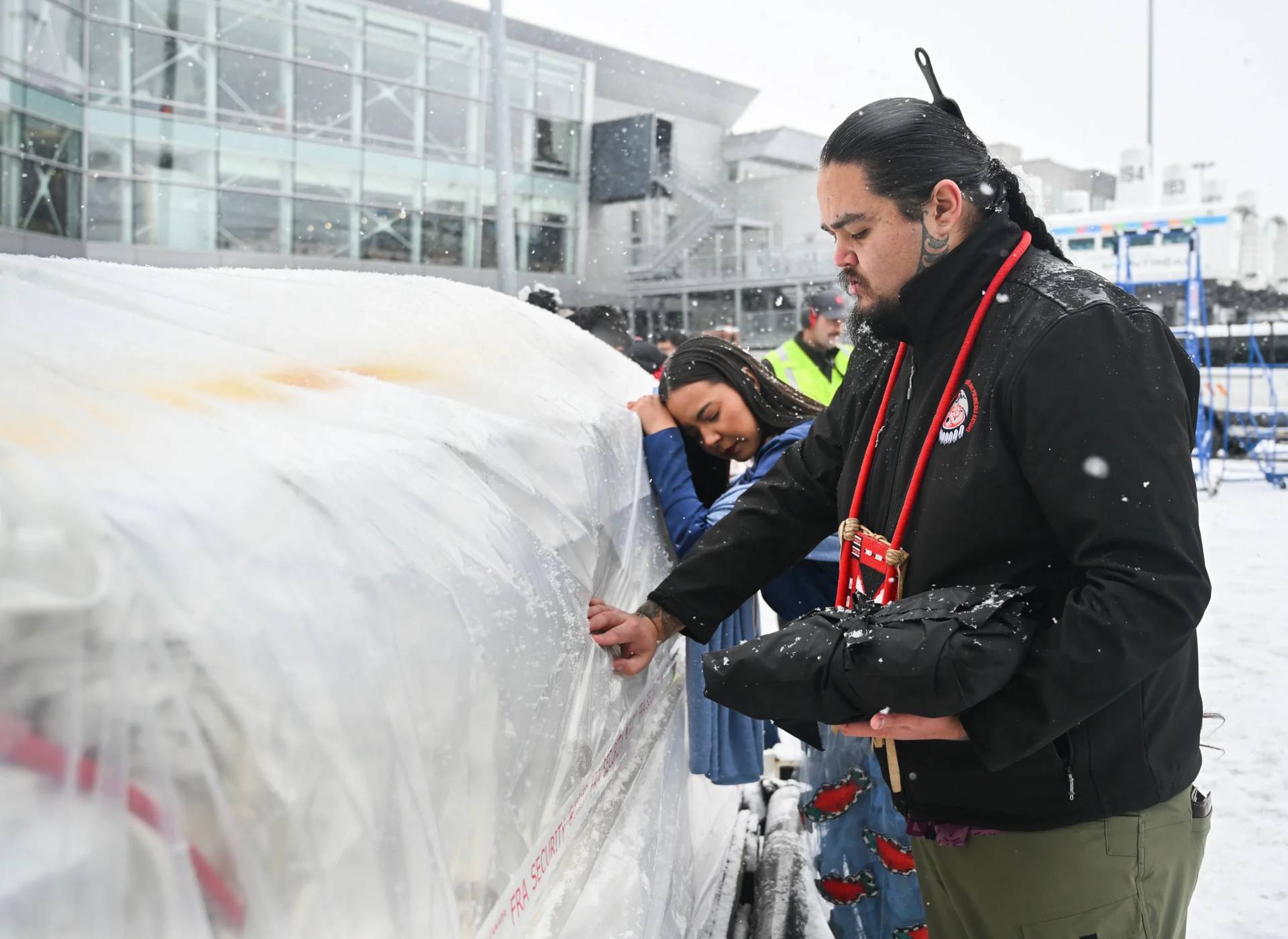ROME — Hours after making a Christmas Eve phone call to Iraqi refugees to express his closeness and to ask them to persevere, Pope Francis implored God on Christmas Day to aid the victims of a “brutal persecution” in Iraq and Syria.
“I ask him, the Savior of the world, to look upon our brothers and sisters in Iraq and Syria, who for too long now have suffered the effects of ongoing conflict and, together with those belonging to other ethnic and religious groups, are suffering a brutal persecution,” he said.
“There are so many tears this Christmas, together with the tears of the Christ child,” the pontiff said toward the end of his brief remarks, seeming visibly moved.
Although the pope did not cite the Islamic State by name, his reference to upheaval caused by the militant Islamic movement was clear. An estimated 120,000 Christians, along with large numbers of Yazidis and other minority groups, have fled ISIS forces in northern Iraq over the past six months, many of them now living in makeshift refugee camps.
“May indifference be changed into closeness and rejection into hospitality, so that all who now are suffering may receive the necessary humanitarian help to overcome the rigors of winter, return to their countries, and live with dignity,” Francis said.
Also with regard to the Middle East, the pontiff appealed for support for all those “committed effectively to dialogue between Israelis and Palestinians.”
Francis concluded his brief remarks with a prayer that God’s “redeeming strength … transform arms into ploughshares, destruction into creativity, [and] hatred into love and tenderness.”
The comments came in the pope’s noontime message for Christmas Day, known as the Urbi et Orbi blessing, meaning “to the city and to the world.” He delivered it in Italian from the balcony of St. Peter’s Basilica, overlooking a crowded square.
Among other festive flourishes, Francis was greeted by a musical band of the Italian Carabineri, Italy’s national military police, decked out in full dress uniform.
Popes typically use the Urbi et Orbi address to call for peace and to offer words of consolation and hope for people caught in especially traumatic situations, and that was the theme of Francis’ remarks.
Francis called for peaceful resolution of a series of other conflict situations, including Ukraine, Libya, South Sudan, the Central African Republic, and various regions of the Democratic Republic of the Congo.
He offered sympathy for the victims of the Ebola epidemic, citing above all Liberia, Sierra Leone, and Guinea, and also the families of the children killed in an attack on a school in Peshawar, Pakistan, on Tuesday that left an estimated 145 people dead, the vast majority children.
“I beseech all who have political responsibility to commit themselves through dialogue to overcoming differences and to building a lasting, fraternal coexistence,” the pope said.
He also voiced concern for children facing other forms of hardship, including “so many children who are abused and exploited … buried under a culture that doesn’t love life.”
“May Jesus save the vast numbers of children who are victims of violence, made objects of trade and trafficking, or forced to become soldiers,” he said. He added that his thoughts also go to children “killed before seeing the light,” a reference to abortion.
Francis’ phone call to refugees at the Ankawa tent camp, outside the Iraqi city of Irbil, came shortly before he celebrated the traditional Mass for Christmas night in St. Peter’s Basilica. The call was made using a satellite phone and was broadcast live on Italian television.
Shortly after the call began, the satellite connection was lost, so Francis continued his remarks for the television host and they were later relayed to the refugees.
“Dear brothers, I am close to you, very close to you in my heart,” he told them, saying he was thinking particularly of children and the elderly.
“Innocent children, children who have died, exploited children … I am thinking, too, about grandparents, about the older people who have lived their lives, and who must now bear this cross,” Francis said.
The fate of religious minorities in the Middle East, especially the region’s beleaguered Christian population, has been a major preoccupation for Pope Francis during this Christmas season.
On Tuesday, the pope released an unusual open letter to the Christians of the Middle East, describing them as victims “of a newer and disturbing terrorist organization, of previously unimaginable dimensions, which has perpetrated all kinds of abuses and inhuman acts.”
“It has particularly affected a number of you, who have been brutally driven out of your native lands, where Christians have been present since apostolic times,” the pope wrote.
“This suffering cries out to God,” the pope wrote, “and it calls for our commitment to prayer and concrete efforts to help in any way possible.”
During the Christmas Eve Mass at the Basilica of the Nativity in Bethlehem, Latin Rite Patriarch Fouad Twal echoed the pope’s appeal for peace, calling on Jews, Muslims, and Christians in the Middle East to find ways to live together in a spirit of “equality and reciprocal respect.”
The Rev. Pierbattista Pizzaballa, who oversees the Franciscan presence in the Middle East, released a Christmas statement saying that this year the holiday’s message of hope is especially needed.
“Even in our Middle East, so thirsty for justice and dignity, for truth and love, Christ comes to us,” Pizzaballa said.
“We’re realists,” he said. “We can’t change the destiny of the world, or resolve the problems of our lacerated and divided peoples … but nothing can take away the love and hope that will never disappoint us.”
The Urbi et Orbi blessing capped a busy Christmas season for Pope Francis, which began Monday with a speech to the Vatican’s upper echelons in which he ticked off a series of 15 spiritual diseases with which he believes senior officials at times are infected, including the “terrorism of gossip” and “spiritual Alzheimer’s.”
Barring another of Francis’ trademark surprises, the next time the pontiff is scheduled to appear in public will be Sunday for a noontime Angelus address. Next week, the pontiff will preside over a vespers service for New Year’s Eve and a Mass for New Year’s Day.
















